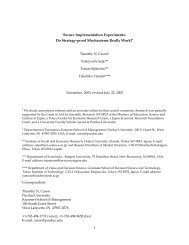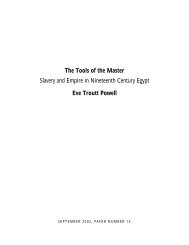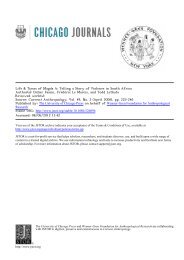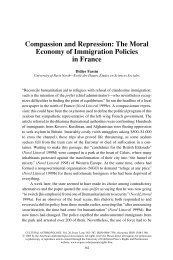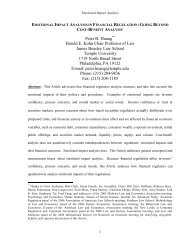Governance, Growth, and Development Decision-making - School of ...
Governance, Growth, and Development Decision-making - School of ...
Governance, Growth, and Development Decision-making - School of ...
Create successful ePaper yourself
Turn your PDF publications into a flip-book with our unique Google optimized e-Paper software.
tortions emerging to undo those that are being dealt with. If a political<br />
party is forced to give cheap credit to politically powerful groups<br />
in order to buy support <strong>and</strong> remain in power, imposing central bank<br />
independence will <strong>of</strong>ten induce the use <strong>of</strong> other means to buy the<br />
same support. The seesaw effect does not mean that policy reform<br />
is impossible or always useless. But it implies that policy reform,<br />
without underst<strong>and</strong>ing why policies were distorted in the first place<br />
<strong>and</strong> what the political economy constraints are, is likely to fail or<br />
may even create further inefficiencies. The first step in any process<br />
<strong>of</strong> policy reform must therefore be a sound underst<strong>and</strong>ing <strong>of</strong> what<br />
the causes <strong>of</strong> the implementation <strong>of</strong> the distortionary policies were<br />
in the first place.<br />
4. Refrain from Policies that Will Create New, <strong>and</strong><br />
Potentially Dangerous, Political Constituencies<br />
Every policy intervention creates winners <strong>and</strong> losers. The winners<br />
not only gain economically, but also become politically powerful.<br />
These politically powerful groups can then become a barrier against<br />
further progress. This is well illustrated by the experience <strong>of</strong> import<br />
substitution, which supported nascent industrial groups in many<br />
developing economies. In most cases, the subsidized conglomerates<br />
were highly inefficient <strong>and</strong> became a formidable obstacle to further<br />
reform.<br />
International organizations are still involved in various different<br />
types <strong>of</strong> programs that amount to picking winners. This is to some<br />
extent unavoidable, because every choice <strong>of</strong> project to be supported<br />
or subsidized will create some winners. Yet, it is important that<br />
these distributional implications <strong>of</strong> international programs are recognized<br />
<strong>and</strong> are managed appropriately.<br />
There is also the danger that international organizations, including<br />
the World Bank, may become even more involved in selective<br />
subsidies <strong>and</strong> industrial policies in the years to come in response to<br />
the perceived failure <strong>of</strong> the Washington consensus. This is not the<br />
right place to debate whether or not the Washington Consensus<br />
Daron Acemoglu 5



